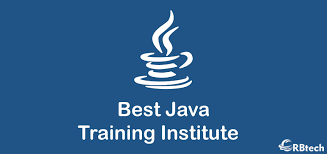Introduction: Java and Kotlin are two popular programming languages used for Android application development. While Java has been the traditional choice for many years, Kotlin has emerged as a modern alternative with its concise syntax and powerful features. In this guide, we'll compare Java and Kotlin, helping you understand the strengths and weaknesses of each language to make an informed decision when choosing the right language for your next application development project.
Understanding Java: Java is a widely-used, object-oriented programming language known for its platform independence, robustness, and extensive ecosystem. It has been the primary language for Android app development for many years and offers strong support for building scalable and maintainable applications. Java is backed by a vast community of developers and has a rich set of libraries and frameworks available for various application development needs.
Understanding Kotlin: Kotlin is a modern, statically-typed programming language developed by JetBrains. It is fully interoperable with Java, meaning Kotlin code can seamlessly integrate with existing Java codebases. Kotlin is lauded for its conciseness, safety features, and expressiveness, which can lead to increased developer productivity and fewer bugs. Kotlin has gained significant traction in the Android development community and is endorsed by Google as an official language for Android app development.
Comparing Java and Kotlin:
-
Syntax and Conciseness:
- Kotlin's syntax is more concise and expressive compared to Java, resulting in less boilerplate code and improved readability. Features such as type inference, data classes, and extension functions enable developers to write more concise and elegant code in Kotlin.
- Java, on the other hand, has a more verbose syntax, requiring developers to write more lines of code for accomplishing similar tasks. While Java 9 introduced some improvements, such as the introduction of modules and enhancements to the Collections API, it still lags behind Kotlin in terms of conciseness.
-
Null Safety:
- Kotlin provides built-in null safety features, which help prevent NullPointerExceptions at compile-time by distinguishing between nullable and non-nullable types. This reduces the likelihood of runtime crashes caused by null references, resulting in more robust and stable code.
- Java lacks built-in null safety features, making it prone to NullPointerExceptions if proper null checks are not implemented. While tools like Optional and annotations such as @Nullable and @NonNull have been introduced to mitigate this issue, they are not as comprehensive as Kotlin's null safety features.
-
Interoperability:
- Both Java and Kotlin are fully interoperable, meaning Kotlin code can call Java code and vice versa without any compatibility issues. This allows developers to gradually migrate existing Java codebases to Kotlin or incorporate Kotlin into new projects seamlessly.
- Kotlin's interoperability with Java makes it an attractive choice for developers looking to leverage existing Java libraries and frameworks while taking advantage of Kotlin's modern features and syntax.
-
Learning Curve:
- Java has a steeper learning curve compared to Kotlin, especially for beginners, due to its verbose syntax and complex language features such as checked exceptions and boilerplate code.
- Kotlin's more intuitive syntax and modern language features make it easier for developers to learn and adopt, particularly for those with prior experience in Java or similar languages.
Choosing the Right Language:
- Consider the specific requirements and constraints of your project, including the existing codebase, team expertise, and project timeline, when choosing between Java and Kotlin.
- Evaluate the benefits and trade-offs of each language in terms of syntax, null safety, interoperability, and learning curve to determine which language best aligns with your project goals and development preferences.
Conclusion: Java and Kotlin are both powerful languages for Android application development, each with its own strengths and weaknesses. While Java offers robustness and a vast ecosystem, Kotlin provides conciseness, null safety, and modern language features. By carefully evaluating the differences between Java and Kotlin and considering your project requirements, you can choose the right language to maximize productivity and build high-quality Android applications. Whether you opt for a Java training course or dive into Kotlin, the key is to continuously improve your skills and stay updated with the latest advancements in mobile app development.

